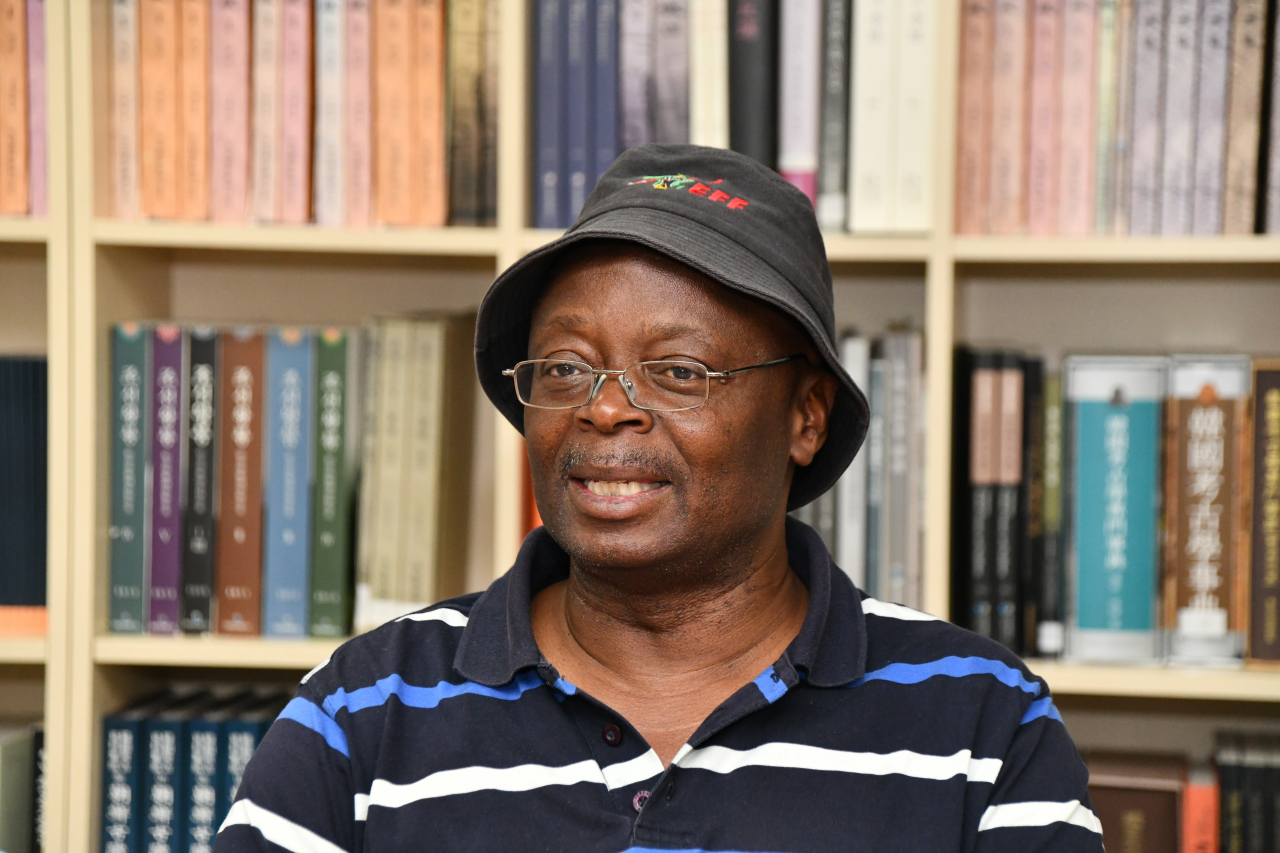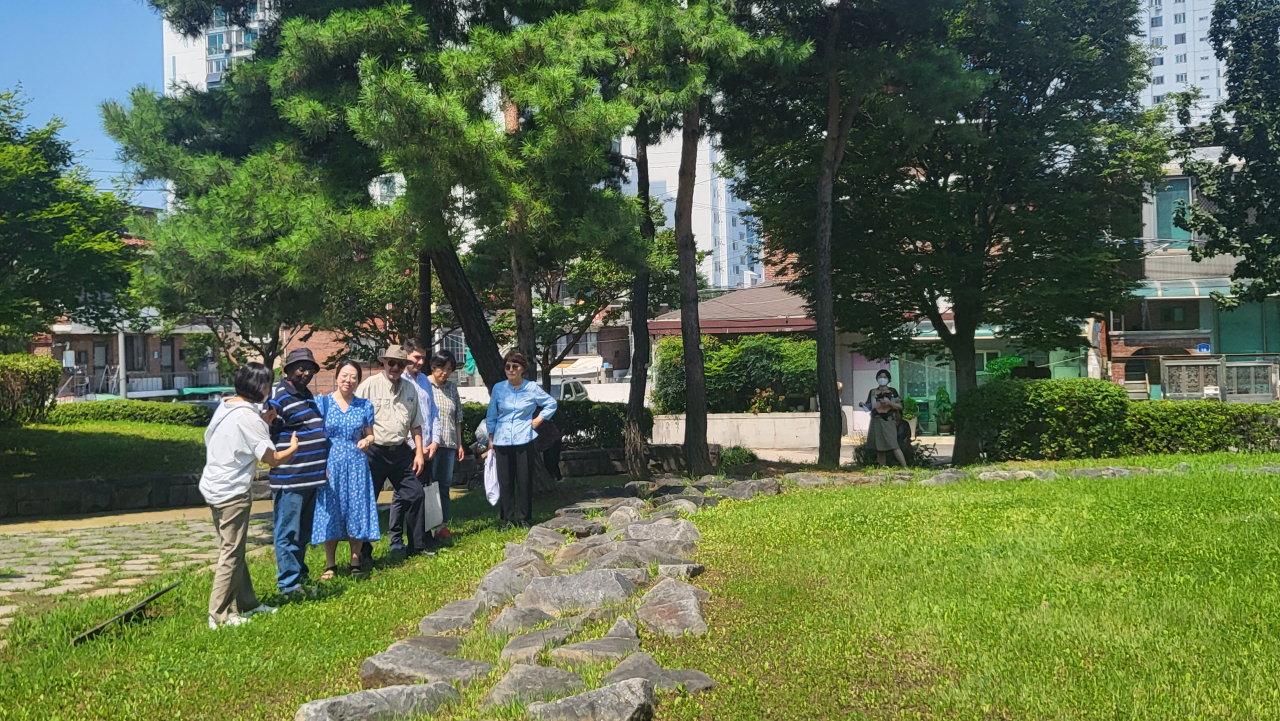[Herald Interview] There's a difference between archaeology, heritage: ICCROM director-general
By Kim Hae-yeonPublished : July 20, 2023 - 10:32

When conflicts arise concerning the preservation of relics and urban development in a city, people often seek solutions by looking at how other countries have handled similar cases.
However, Webber Ndoro, the director general of the International Center for the Study of the Preservation and Restoration of Cultural Property, emphasizes that the ultimate decision should lie with the leaders and people within the community or city, as they must determine which aspect to value at the present moment.
It is essential to recognize that the decisions can evolve over time, which is why Ndoro advocates distinguishing between "archaeology" and "heritage."
The director-general visited Pungnaptoseong, an earthen fortification situated in Pungnap-dong, a residential area in Songpa-gu, Seoul, Wednesday, a day before the 2023 World Archaeology International Symposium held in central Seoul, where he led a keynote speech.
The fortification has been of significant interest in the country, due to its connection to the 500-year-old history of the Hanseong Period (18 BC-AD 475) during the Baekjae Kingdom. But for decades, conflicts have persisted concerning the balance between preserving the historical site, conducting excavations of the ruins and respecting the housing property rights of neighboring residents.
An illustrative example of these conflicts is the Gyeongdang District Incident, in 2000, when an area earmarked for excavation was damaged by residents intending to construct new apartments in the region.
"These problems are replicated all over the world, particularly in urban areas where issues of development and heritage clash. That is why I always look to differentiate archaeology and heritage," Ndoro said during a press interview, Wednesday. "Archaeology is what we decide to go and discover and do research on, but it only becomes 'heritage' when communities, or the people themselves began to identify with the place."
ICCROM was founded in 1956 to safeguard and restore global cultural heritage, and serves as an advisory body to the World Heritage Committee. The organization currently consists of 137 member countries, including South Korea. In his seventh year as ICCROM's director general, Ndoro shared his experience working in different continents and cities.
He noted that archaeologists often complain about communities lacking a full grasp of the importance of an excavation project. However, Ndoro emphasized that it is the shared responsibility of archaeologists and the government authorities to bridge this understanding gap and make the historical importance accessible and comprehensible to the general public, which are often those without an archaeological mindset.

Currently, a portion of the Pungnaptoseong area has been converted into a public park to ensure the proper preservation of the underlying relics. However, any additional excavation efforts have been suspended indefinitely due to a significant part of the remaining area being designated for residential use. When The Korea Herald followed Ndoro's visit to the site, people were seen leisurely strolling around and relaxing on benches, while cicadas and birds chirped in the background.
"I am genuinely impressed by the work accomplished thus far by the Korean government, their efforts are truly commendable. If I may offer a piece of advice, it would be to continue the historical dialogue with the public," Ndoro said. "After all, heritage is ultimately about what holds significance for us, the people living in the present."



















